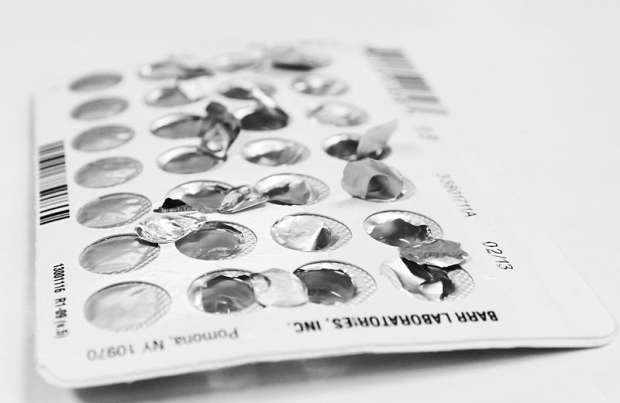 The author of a controversial new book is warning young women to look beyond the Pill and educate themselves about their birth control options.
The author of a controversial new book is warning young women to look beyond the Pill and educate themselves about their birth control options.
Holly Grigg-Spall’s Sweetening the Pill: or How We Got Hooked on Hormonal Birth Control examines the physical and emotional side effects of the Pill and barriers in accessing non-hormonal contraceptives.
In an interview with Humber News, Grigg-Spall said college-age women are particularly at risk from some of the Pill’s more sinister side effects. Many begin prescriptions during formative years, subjecting their developing bodies to influxes of hormones.
“You have to consider the emotional, psychological and sexual effects of birth control on young women,” she said.
“When you’re a teenager, your body’s still maturing. You may well experience heavy periods and cramps, and doctors often respond to that as though putting a young woman on the Pill is a medical decision rather than a contraceptive decision,” said Grigg-Spall. “Often we see the Pill being used t0 medicate periods, when actually it’s just your body going through the maturation process.”
In the U.S. and Canada, class-action lawsuits against birth control giants Berlex, Apotex, and Bayer Pharmaceuticals have shed light on some of the more extreme cases of side effects – including blood clots.
Lyba Spring, sexual health educator and blogger for the Canadian Women’s Health Network, told Humber News that while the Pill can have harmful side effects, it is still the most effective form of birth control.
“It’s tried-and-true in the sense that it is the most studied medication ever. And when I say true, I mean it works. However, it is definitely not a method for some women,” she said, including smokers over 35 and those who experience certain kinds of migraines.
“When a woman is discussing a birth control method with her health care provider, the health care provider is obliged to clearly outline the potential side effects, but doctors often don’t have the time to spend,” said Spring.
“I would recommend that young women start with a sexual health clinic, because at least they can sit down and get the information they need. They can walk away and consider it and come back. But it’s certainly easier for a doctor to reach for a tried-and-true method.”
Grigg-Spall advises young women educate themselves about all forms of birth control, not just the Pill. Options like the IUD, condoms, and even the old-fashioned diaphragm.
 “We aren’t offering alternatives,” she said. “If women don’t want to use hormonal birth control, and they have every right not to, then we should be openly discussing effective alternatives, providing access to those alternatives, making sure people know how to use them properly, and making sure people know what their options are.”
“We aren’t offering alternatives,” she said. “If women don’t want to use hormonal birth control, and they have every right not to, then we should be openly discussing effective alternatives, providing access to those alternatives, making sure people know how to use them properly, and making sure people know what their options are.”
Pregnancy is not the only risk associated with sexual activity and the Pill doesn’t protect against STIs.
“In your teens and early 20s you should be using condoms anyway,” said Grigg-Spall. “99.9 per cent [of college students] should be using condoms and won’t be in steady long-term relationships in which they can know that they’re safe.”
Sweetening the Pill was released in Sept. in the U.K. and has already generated significant controversy, including a petition in the U.S. to prevent the book from ever hitting American bookstores.
“The Pill really has become synonymous with women’s liberation, women’s progression and women’s rights,” said Grigg-Spall. “It’s really been given a lot of credit for what women have been able to achieve over the past 50 years.”
Grigg-Spall expected the controversy.
“I knew that some of my toughest critics were going to be the feminist pundits, the feminist media leaders,” she said on the phone from Los Angeles, where she is working on a documentary film based on the book. “Partly because I so openly criticize them in my book for not doing more, not saying more.”
At Humber College, hormonal birth control is the only contraceptive covered by HSF’s health insurance plan. Condoms are free at the Health Centre, but only the hormonal forms – the NuvaRing, the patch, and oral contraceptives – are available by prescription.
“In the end it’s down to individual women deciding what they’re happy to do,” said Grigg-Spall. “And demanding access to other options.”
Sweetening the Pill will hit Canadian bookstores Oct. 7.
For more information on the Canadian Women’s Health Network and birth control options, visit the organization’s FAQ and emergency contraceptive pages.

